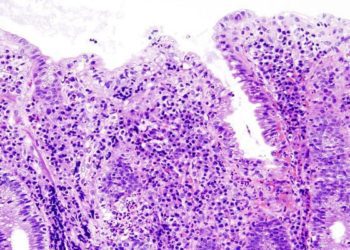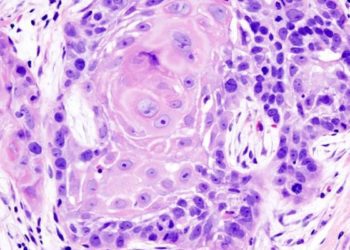Weekly insulin efsitora noninferior to daily degludec in reducing glycated hemoglobin levels
1. In this randomized controlled trial, insulin alfa efsitora (efsitora) demonstrated noninferiority to degludec in reducing glycated hemoglobin (HbA1c) levels among adult patients with type 2 diabetes.
2. No significant differences were observed in the incidence of adverse effects between participants using efsitora and degludec.
Evidence Rating Level: 1 (Excellent)
Study Rundown: Insulin injections are often introduced to supplement glucose-lowering medications when optimal glucose control in type 2 diabetes is no longer achieved. However, many patients avoid insulin due to misconceptions and concerns about side effects, resulting in suboptimal management. Research suggests that reducing injection frequency improves adherence and glucose control. This study evaluated the safety and efficacy of insulin efsitora alfa (efsitora), a weekly basal insulin, in adults with type 2 diabetes. Results showed efsitora is noninferior to daily degludec in reducing glycated hemoglobin (HbA1c) levels, with consistent findings in patients using a glucagon-like peptide-1 (GLP-1) receptor agonist and those who were not. Efsitora was also noninferior in lowering fasting serum glucose levels. Patients treated with efsitora spent less time above the upper target glucose range (>180 mg/dL) compared to degludec, with no significant differences in time spent below the lower range (<54 mg/dL). Body weight changes were similar in both groups. Efsitora-treated patients experienced more hypoglycemic alerts and clinically significant hypoglycemia, though no severe cases were reported, unlike a small percentage in the degludec group. Study limitations included an open-label design, lack of dose adjustments, and non-integrated glucose monitoring data from China. Despite these, the findings suggest weekly efsitora is a safe and effective alternative to daily degludec for type 2 diabetes management.
Click here to read the study in NEJM
Relevant Reading: A New Once-Weekly Insulin — Its Effectiveness and Safety
In-Depth [randomized controlled trial]: This randomized controlled trial investigated the efficacy and safety of efsitora, a weekly insulin injection, compared to degludec for adults with type 2 diabetes. Participants were eligible if they were over 18, had a glycated hemoglobin level between 7.0% and 10.5%, a BMI of 45.0 or less, had been on one to three noninsulin glucose-lowering medications for at least three months, and had no prior insulin use. Exclusion criteria were not explicitly stated. A total of 928 participants were randomized, with 466 assigned to the efsitora group and 462 to the degludec group. At week 52, participants in the efsitora group showed a mean reduction in glycated hemoglobin from 8.21% at baseline to 6.97% (least-squares mean change, -1.26 percentage points), compared to a reduction from 8.24% to 7.05% in the degludec group (least-squares mean change, -1.17 percentage points). Efsitora met the criteria for noninferiority but not superiority (p=0.19). These findings were consistent for patients using a GLP-1 receptor agonist and those who were not. In terms of fasting glucose, the efsitora group achieved a least-squares mean change of -61.9 mg/dL compared to -56.8 mg/dL in the degludec group. Additionally, efsitora-treated participants spent 3.1% more time within the target glucose range (95% CI, 0.1–6.1). Safety profiles were similar, with hypoglycemia rates of 0.58 events per participant for efsitora and 0.45 for degludec (rate ratio, 1.30; 95% CI, 0.94–1.78). Overall, 72.5% of participants in the efsitora group and 73.8% of those in the degludec group reported an adverse event during the study period. Notably, no severe hypoglycemia occurred in the efsitora group, whereas six cases were reported in the degludec group. In summary, efsitora was found to be noninferior to degludec in safety and efficacy for adults with type 2 diabetes inadequately controlled on noninsulin regimens.
Image: PD
©2025 2 Minute Medicine, Inc. All rights reserved. No works may be reproduced without expressed written consent from 2 Minute Medicine, Inc. Inquire about licensing here. No article should be construed as medical advice and is not intended as such by the authors or by 2 Minute Medicine, Inc.







